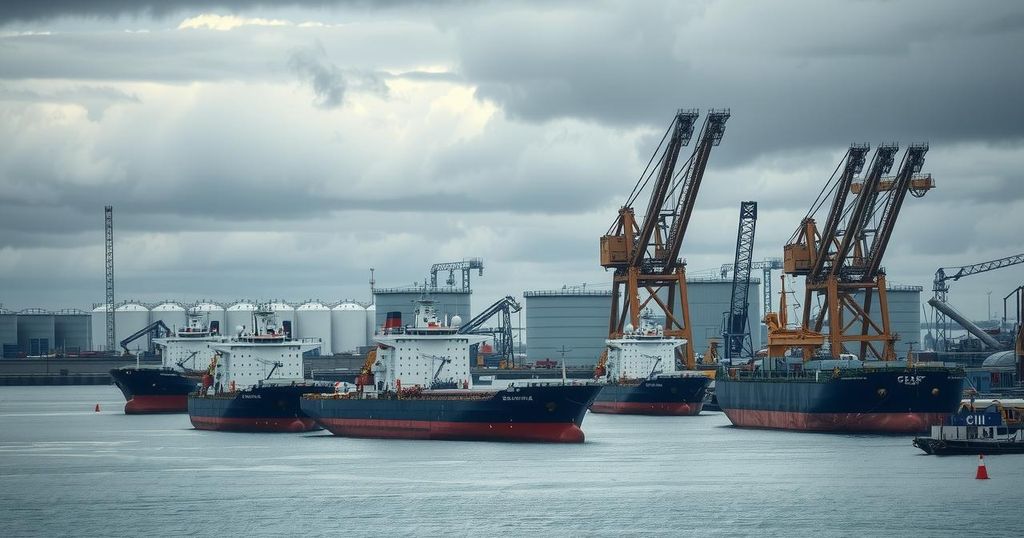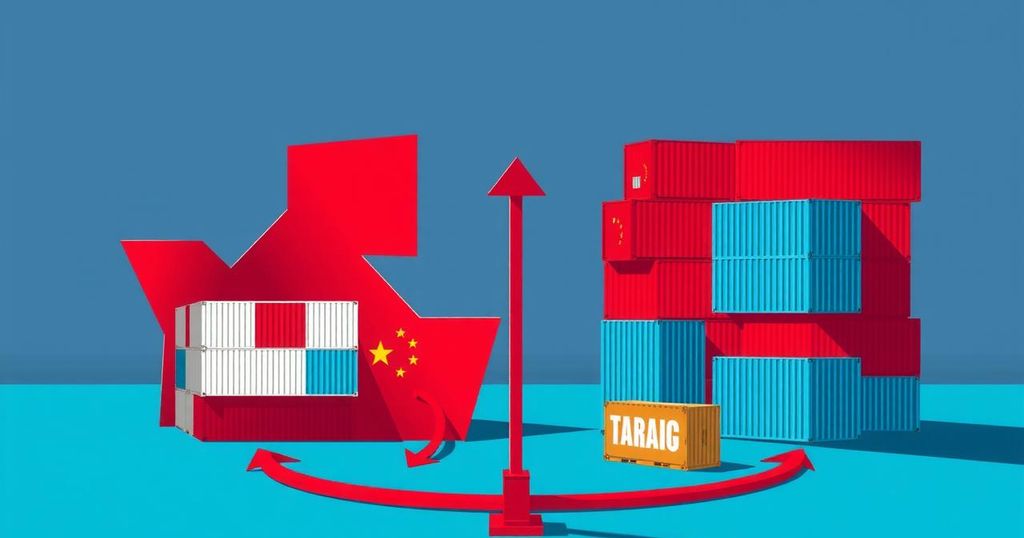Politics
ASIA, BAJO GRANDE, BOLIVAR, CARACAS, CARIBBEAN, CHE, CHEVRON, CHINA, CUBA, DONALD TRUMP, GEOPOLITICS, GLOBAL ECONOMY, INDIA, JOSE, MADURO, MARCO RUBIO, MEXICO, NATIONAL SECURITY, NICOLÁS MADURO, NICOLAS MADURO, NORTH AMERICA, RELIANCE INDUSTRIES, RUBIO, SANCTIONS, SOUTH AMERICA, TRADE, TRUMP, TRUTH SOCIAL NETWORK, UNITED STATES, US, VENEZUELA, WASHINGTON
Sophia Klein
India and China Cease Venezuelan Crude Purchases Amid U.S. Tariff Imposition
The U.S. has implemented a 25% tariff on nations importing Venezuelan oil, resulting in India and China halting their crude purchases. This measure targets Nicolás Maduro’s regime, accused of electoral fraud. The policy has caused significant disruption to Venezuela’s oil exports and threatens its revenue amid ongoing U.S. sanctions.
The recent imposition of a 25% tariff on countries importing oil and gas from Venezuela by the United States has prompted both India and China to cease their crude oil purchases. These two nations collectively represented over 50% of Venezuela’s crude exports, with China importing 351,000 barrels per day (bpd) last year and India 254,000 bpd as of January. Notably, India’s Reliance Industries has indicated plans to halt imports.
The tariff announcement, made by U.S. President Donald Trump through his Truth Social network, aims to exert pressure on Nicolás Maduro’s regime, which is accused of maintaining control through electoral fraud. Trump stated, “Venezuela has shown great hostility towards the United States and the Freedoms we defend. Therefore, any Country that buys Oil and/or Gas from Venezuela must pay a 25% Tariff to the United States on any Trade it conducts with our Country.”
An Executive Order allows Secretary of State Marco Rubio to determine the implementation of this tariff on goods from nations importing Venezuelan oil, effective April 2, 2025. In addition, Washington has extended Chevron’s deadline to cease its operations in Venezuela until May 27, impacting the exportation of Venezuelan crude to the U.S.
Venezuela’s oil exports, which were last measured at 910,000 bpd, are expected to face additional challenges as operations at vital ports such as Jose and Bajo Grande are slowing, leading to delays for tankers and reductions in Chevron’s fleet ahead of its deadline.
Although China has expressed criticism regarding the tariffs, it has opted for a cautious approach. Meanwhile, Venezuela’s government has labeled U.S. sanctions as an economic assault. The implementation of this policy risks a significant revenue decline for the Venezuelan regime.
Rubio articulated the U.S. stance: “The United States will not tolerate any third country or its oil companies producing, extracting or exporting oil and oil-related products with the Maduro regime in Venezuela.” He further elaborated, stating that the regime has “systematically stolen from elections, plundered its people, and collaborated with our enemies.” He warned that any nation allowing its companies to engage with Venezuela would face new tariffs and that such companies would face sanctions. Furthermore, current vessel tracking services indicate a slowdown in crude loading operations at Venezuelan ports.
The recent decision by the United States to impose a 25% tariff on countries purchasing oil from Venezuela has significantly impacted Caracas’ primary crude buyers, India and China. As these nations have opted to halt imports, the Venezuelan regime faces an impending revenue crisis amidst widespread allegations of electoral fraud and economic misconduct. U.S. Secretary of State Marco Rubio highlighted the gravity of the situation, linking external corporate engagement in Venezuelan oil production to increased tariffs and sanctions. The unfolding scenario may disrupt the global oil market further, complicating Venezuela’s already strained economy.
Original Source: en.mercopress.com








Post Comment